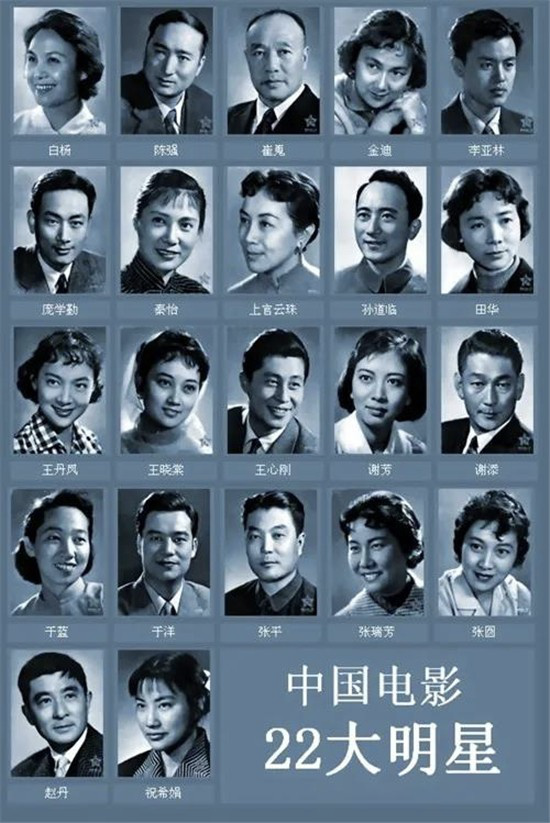
I don't know where to start, "virtue and artistic excellence" has become an important standard for praising an actor. But is this really a natural and reasonable phenomenon? Perhaps when we re examine the current entertainment industry, we should first focus on the documentary film "Actor" released on October 30th.

In addition to being an "actor", the protagonist in the movie also has a more charming title - a star.
In 1961, after Premier Zhou proposed to select China's own film stars in the film industry, after a grand selection, 22 actors including Zhao Dan, Xie Tian, and Xie Fang, selected from multiple institutions such as Shanghai Film Studio, Beijing Film Studio, Changchun Film Studio, and Bayi Film Studio, were named "New Chinese People's Actors" and became known as the "Twenty Two Great Film Stars" by the people.

The film does not simply showcase the demeanor of these old artists, but rather revolves around the original aspirations of every literary and artistic worker in that era. Just as the movie poster draws on the classic lines in the movie "Stage sisters" starring Xie Fang, "live a pure life and sing the opera conscientiously".
moral
The so-called "virtue and art are both fragrant", and "virtue" comes first. In the documentary film "Actor", there is a scene where the director interviews senior Zhu Xijuan. When Zhu Xijuan talked about her group of people learning to perform, they all accepted the performance theory of Soviet playwright Stanislavsky. And their first class was "The Ethics of Actors".

At that time, she was selected as the heroine of the Red Detachment of Women by Director Xie Jin, and later won the honor of Best Actress of the First Popular Film Hundred Flowers Award Award. You know, in the era of underdeveloped communications, the Hundred Flowers Award Awards were voted by the audience one by one to choose the "best" in their hearts.
After all, for actors, being recognized by the audience is also a crucial part of success. Subsequently, she was selected as one of the "New Chinese People's Actors", and these subsequent honors are an excellent blessing for any actor. Moreover, at that time, Zhu Xijuan was just a newcomer actor. But the surrounding staff did not hold her up for this, but instead told her, 'Be humble and cautious, guard against arrogance and rashness'.

Actor Wang Xiaotang also mentioned the issue of actor's cultivation in the interview program "Footprint", "Actors should be rewarded for their moral and artistic qualities. I think this is the minimum requirement for being an actor. He should do this because you are a public image. If you are not good at both morality and art, your image will not be convincing
In the eyes of the older generation of actors, 'virtue' is always that premise. Especially in the early stages of the development of new Chinese cinema, many films with anti Japanese war themes emerged. When actors made themselves martyrs in the camera, they also started from their own moral character.
Yu Lan, who played Jiang Jie in the movie "Eternal Life in the Flame," also exclaimed, "We received all those honors, but she (Jiang Jie) did not receive them.